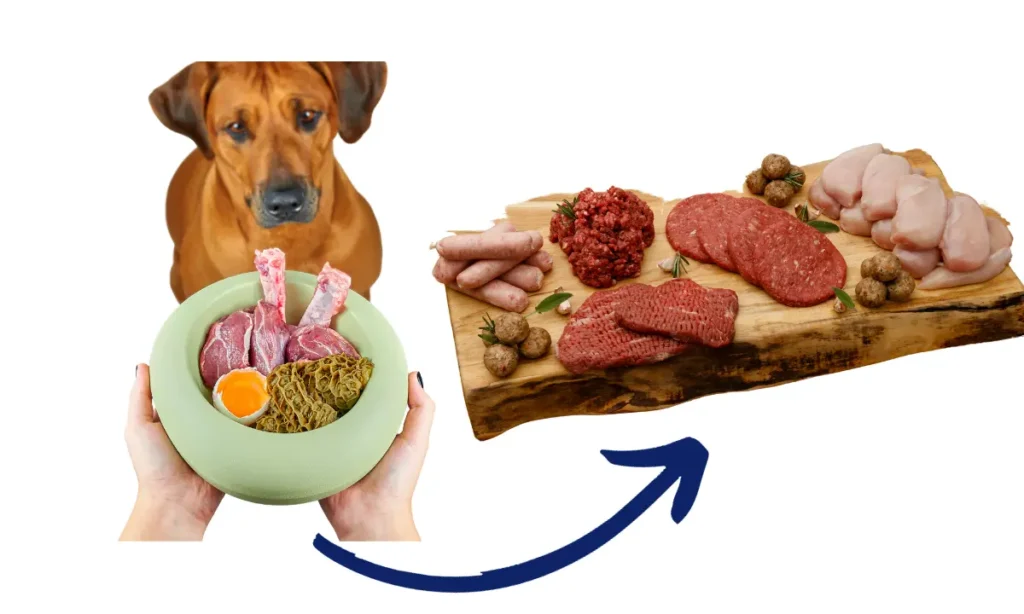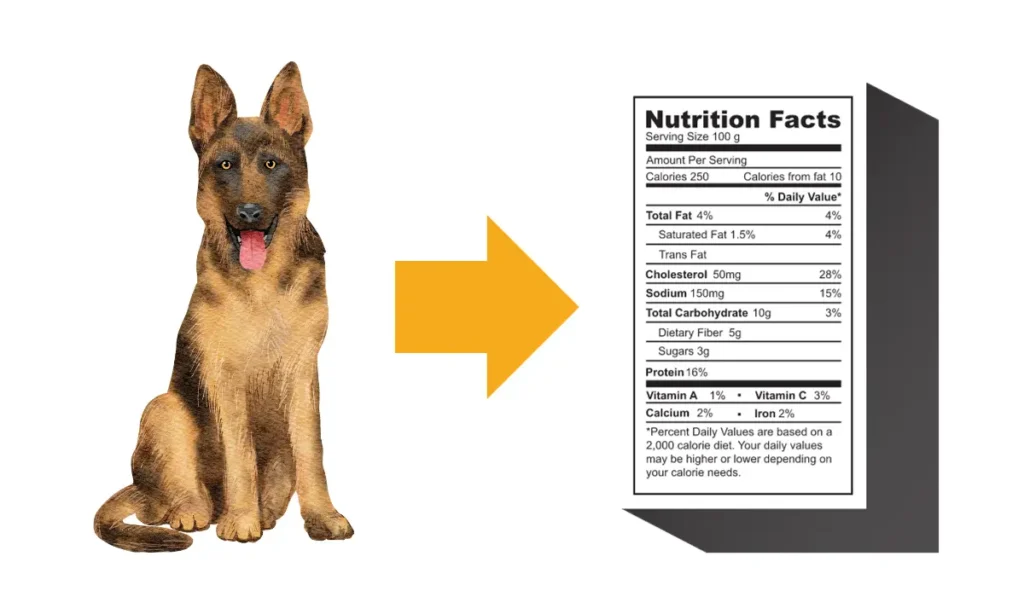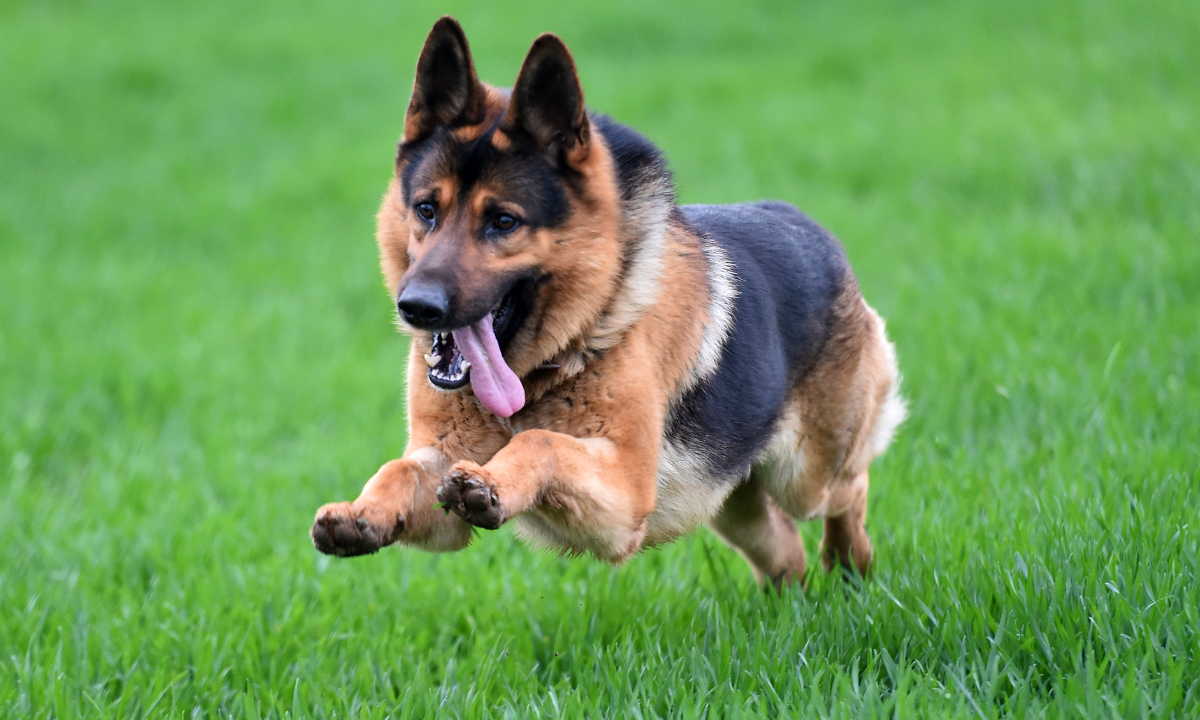German Shepherds are one of the most popular dog breeds around the world. However, many German Shepherds suffer from skin allergies. Finding the right dog food to manage skin allergies can be challenging.
In this blog post, I will discuss some of the best dog food for german shepherds with skin allergies. I will look at different types of dog foods and essential ingredients to consider and avoid and provide specific brand recommendations. I aim to help dog owners choose a nutritious diet that keeps their German Shepherd’s skin happy and healthy.
Grain-Free vs. Grain-Inclusive Foods
One of dog owners’ most significant choices is whether to feed a grain-free or grain-inclusive diet. Many believe grains like wheat, corn and soy are common food allergens and culprits behind skin itchiness and irritation.
While this is true for some dogs, completely avoiding grains is not always necessary. A high-quality diet with limited or hypoallergenic grains may work better for others. Grain-free foods are digested more efficiently but may lack some important nutrients found in whole grains. Both options can control skin allergies depending on the individual dog’s needs. It’s best to check with your vet on the right balance for your furry friend.
Protein Sources to Consider for german shepherds

The protein source used is another important factor. Rabbit, fish, and duck are hypoallergenic proteins less likely to trigger skin reactions. Look for these “limited ingredient” formulas with a single, easily digestible protein.
Chicken and beef are also commonly used but could cause issues in sensitive dogs. Diets rich in omega-3 and -6 fatty acids from salmon, herring or flaxseed can help control inflammation in the skin. Protein quality and digestibility should match the breed’s needs. Again, work with your vet to identify suitable options.
Key Allergen-Friendly Ingredients
Foods labelled “hypoallergenic” aim to minimize common food allergens and sensitivities. Ingredients like sweet potatoes, potatoes, peas, lentils and chickpeas provide valuable vitamins, minerals and fibre with a low risk of irritation. Prebiotics like pumpkin, cranberries and blueberries support probiotic balance for skin health.
Avoid fillers like corn, wheat, soy and byproducts, which are harder to digest. Similarly, steer clear of artificial colours, preservatives and unnecessary additives that could aggravate existing sensitization. A simple, wholesome ingredients list tailored for allergy control works best.
Specific Brand Recommendations
Based on the above factors, some of the best dog food for german shepherds with skin allergies include:
- Royal Canin Veterinary Diet Sensitivity Control – Made with a single source of protein (duck or salmon) and limited ingredients for ultimate tolerance.
- Hill’s Science Diet Sensitive Stomach and Skin – Contains prebiotic fibre and limited common allergens in balanced ratios.
- Purina Pro Plan Sensitive Skin & Stomach – Features a hypoallergenic protein (salmon) and potatoes as the main carbohydrate.
- Merrick Limited Ingredient Diet Real Chicken & Sweet Potato Recipe – Minimal list of high-quality superfoods and limited carbohydrates.
Starting with any of these premium brands formulated for food sensitivities gives the best chance of allergy relief without costly elimination diets. Consistency and patience are crucial to managing this condition over the long run.
Monitoring Progress and Making Adjustments
When switching diets, watching for changes in your dog’s skin over 4-6 weeks is important. Signs like scratching, redness, rashes or sore skin should improve. However, if issues persist or new ones emerge, don’t hesitate to consult your vet for further guidance.
They may recommend adjustments like hypoallergenic treats or supplements, steroid medication for flare-ups or allergy testing. Sometimes, a homemade diet under veterinary supervision works wonders, too. With the proper management, German Shepherds with sensitivities can lead happy, comfortable lives.
Nutritional Requirements of German Shepherds

As active working dogs, German Shepherds have specific dietary needs. Their food should provide high-quality protein for muscle growth and energy. It must also supply glucosamine and chondroitin for healthy joints and omega fatty acids to nourish their gleaming coats. Look for diets rated “Excellent” by AAFCO that meet all nutritional levels for this breed. This sets the baseline for ensuring their requirements are met even while controlling skin issues.
Feeding Tips and Schedule
For an adult German Shepherd, divide their daily portion into two meals rather than leaving food out all day. This helps prevent binge eating, which could upset their stomach. Space meals 8-12 hours apart to mimic their natural grazing habits.
Provide fresh, clean water always. To aid skin healing, plastic or ceramic bowls are less likely to trigger reactions than metal or rubber varieties. Maintaining a consistent schedule promotes healthy digestion, too.
Common Skin Conditions in German Shepherds
Allergies are a major concern, but there are other skin issues this breed is prone to. Hot spots, also called moist dermatitis, often follow excessive scratching and cause raw, painful patches.
Yeast and bacterial infections can form if these areas are not treated promptly. Flea, tick and environmental allergies frequently plague shepherds as well. Always watch for early warning signs and contact your vet for the swiftest diagnosis and relief measures.
Grooming and Skin Care Tips
Regular brushing removes loose fur and dirt, exacerbating itching and inflammation. Wipe your dog down with infant wipes daily, if needed, after walks or play. Check for ticks and fleas which provoke irritations.
Limit baths to once a month with a hypoallergenic shampoo unless directed by the vet. Towel dry thoroughly to prevent moisture-induced eruptions. Consult your groomer about hypoallergenic sprays, rinses and food supplements that may aid in symptom management.
Conclusion
Choosing the best dog food for german shepherd puppies with skin allergies requires some research and trial and error. This blog post covered important factors like ingredients, protein sources and specific high-quality diet recommendations.
With guidance from your vet, patience and consistency, you can find a suitable nutrition solution tailored to your Shepherd’s needs. With the proper management, these loving companions need not suffer from sensitive skin issues troubling many of their breed mates. I hope this information helps fellow shepherd guardians care for their furry family members.
Frequently Asked Questions (FAQs)
Q.1: What helps German shepherd skin allergies?
Ans 1: Your dog’s itchy and dry skin can also be relieved with coconut oil. It’s a sensible choice for hydrating their skin. If your dog needs a prescription for an antihistamine, speak with your veterinarian. You might also take your dog to a nutritionist, who can create a healthy meal plan for you.
Q.2: What foods are German Shepherds allergic to?
Ans 2: Dogs most frequently have allergies to proteins, particularly those derived from dairy, meat, chicken, eggs from chickens, soy, or wheat gluten. The antibodies react with the antigens in the food each time a pet consumes it, resulting in symptoms.
Q.3: Can German Shepherds eat rice?
Ans 3: Rice is a fantastic source of energy and carbs for German Shepherds; rice is also highly digestible, making it an excellent choice for dogs with sensitive stomachs or other digestive issues.
Q.4: Can German Shepherds eat chapati?
Ans 4: Conversely, chapati and roti, or flatbread, are not regarded as harmful. Even as a once-in-a-while treat, there aren’t many advantages to giving it to dogs, though. They should also avoid flavoured flatbreads since they can include harmful elements for dogs.
Also read:


